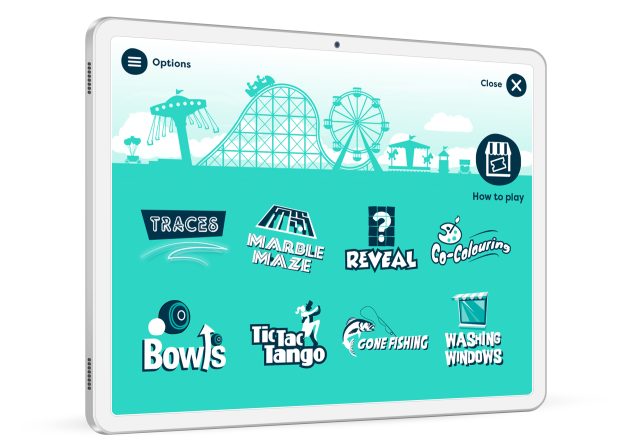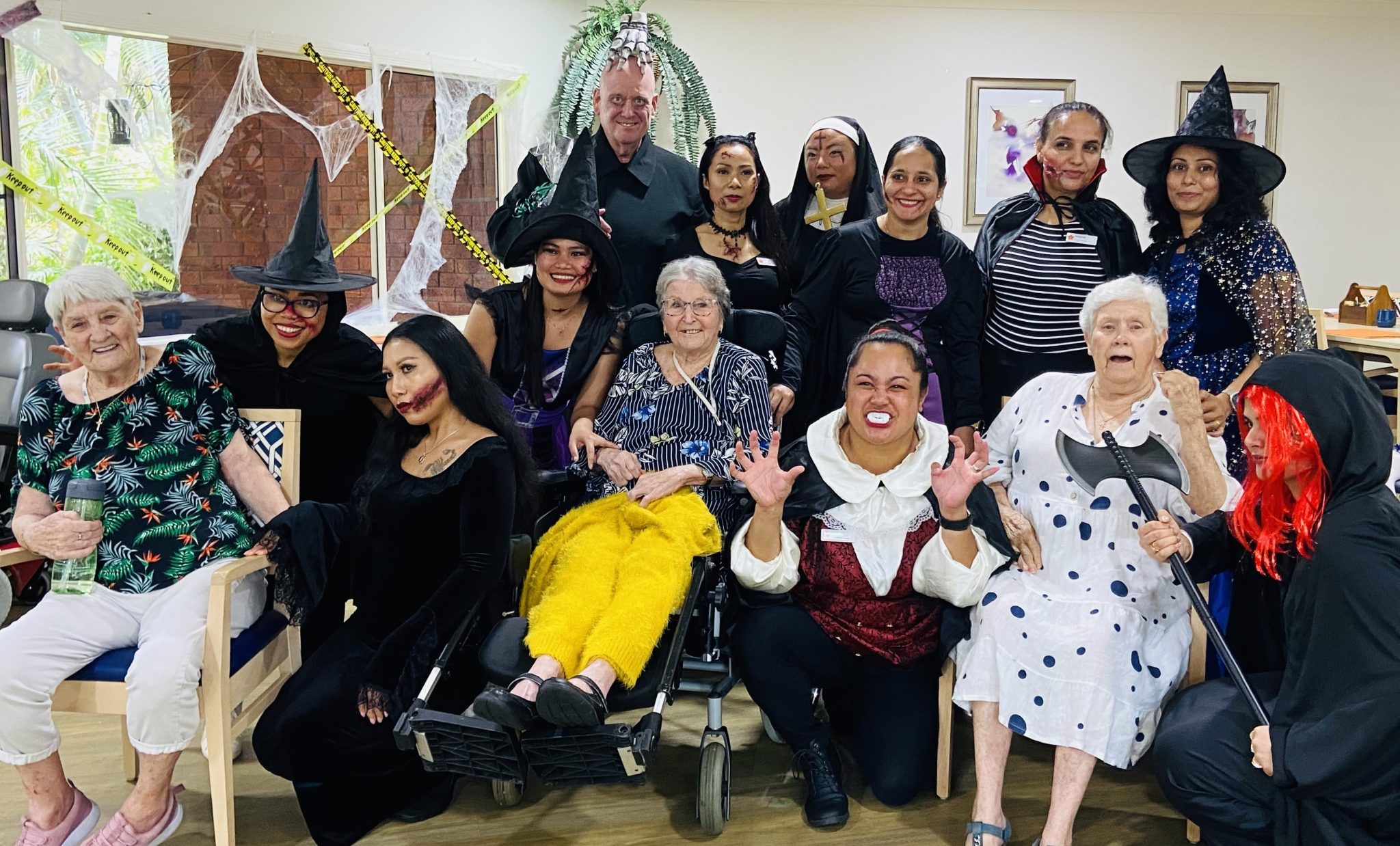Why play games? Aside from being enjoyable, games keep our brains healthy, our spirits up and most importantly, have even been proven to slow the pace of cognitive decline. For older adults and those living with dementia, games that require the use of memory can make a difference in keeping seniors cognitively engaged for longer, while contributing to a better quality of life.
Finding brain games for seniors with cognitive impairment might be easier than you think. It is important, however, to make sure that the games you choose match your senior’s interests and current abilities. Games that require too much effort might leave your senior feeling disengaged or frustrated. Below are some ideas for games to get you started.

Online Games
Video games aren’t just for kids! Recent studies have shown that regular playing of video or online games can have major benefits for older adults experiencing cognitive decline. The combination of a novel format and graphic display seem to positively impact cognitive function in seniors. There are a wide range of brain games for seniors to enjoy online. Free online games such as Wordle (and its cousins, Heardle for music buffs, Globle for geography fans, and Cloudle, for budding meteorologists) provide free, daily challenges. Puzzling games with visual appeal include Candy Crush, Angry Birds and Tetris.
Dementia Australia also champion this movement, developing an app called A Better Visit. The app, available to download on Google Play and the App Store, provides games that encourage interaction and reminiscence between adults experiencing cognitive decline, and family and friends. Dementia Australia’s CEO, Maree McCabe, notes that Christmas and New Year events can be a particularly challenging time for someone living with dementia.
“Family members tell us that often they don’t know how to communicate and interact with a loved one who has dementia especially as their dementia advances,” Ms McCabe said.
“And it may follow that other family members, children and friends start to withdraw and perhaps become less likely to include the person with dementia in everyday activities or schedule in regular visits.
“Over time this social isolation can have a profound impact on the person with dementia and primary carers.
“Introducing the interactive games to play on Dementia Australia’s new iPad app, A Better Visit is a fabulous and fun way to get a conversation started.”

The app features a range of two-player games such as Tic Tac Tango, Marble Maze and Gone Fishing, designed to enhance communication and facilitate positive social interactions between people with dementia, their carers and families.
Why not give it a try the next time you visit your loved one?
Hands-on Games
Brain games for seniors that include a physical element have the added benefit of keeping your senior’s fine motor skills ticking along. Think of activities like jigsaw puzzles or checkers – these games require physical movements as well mental strategy, meaning different parts of the brain and body are getting a workout. For those with less advanced cognitive decline, chess or scrabble might be an option. Simpler alternatives are Jenga or Bananagrams – these are enjoyable and are great for engaging younger generations too, for a more social experience.
Paper-based Puzzles
Pen and paper games are an age-old way to get the cognitive juices flowing. This is a format of memory games elderly people will likely find familiar, and they can also be played alone, so can be a fantastic boredom buster.
Crossword puzzles, wordsearches, and sudoku exercise the memory and reinforce language retention. They can also be easily modified with larger print or simpler questions to suit a range of abilities. Best of all, they are widely available in print or in free printable versions online such as this great library of printable crossword puzzles. In terms of memory games’ benefits, pen and paper games can provide a sense of achievement or progress when completed, which is great for self-esteem.
Card Games
Cards are another format that provides flexibility and familiarity for seniors. Games can be as simple or complex as required and can be played alone or with a partner or group. From the very basic – Memory, Old Maid, Go Fish – to the more strategic, card games require memory of rules, patterns, and procedural memory (which card goes where and in what order). Card games are memory games seniors and younger ones can enjoy together, so are perfect for involving the grand- or great-grand-children. Better yet, cards are available in a range of shapes, themes, and sizes to assist those with vision difficulties, and appeal to different interests.
TriCare Aged Care communities understand the great benefits of brain games for seniors. Our Clinical Managers keep abreast of the latest research in dementia care and put this knowledge into action with our residents. This understanding helps our Clinical Managers to find the right games for residents to connect with family and friends.
“Families of residents can easily connect with them through simple activities. Games like simple puzzles or colouring books are easy ways to share in an activity together,” says Mt Gravatt Clinical Manager Bhargavi Patel.
“Even something as simple as maintaining a dairy or message book with happy memories and asking the resident to read the message, can help to stabilise their mood and offer an opportunity for families to connect.”
For more information on how TriCare Aged Care communities support seniors experiencing cognitive decline or dementia, don’t hesitate to contact us on 1300 874 2273.




